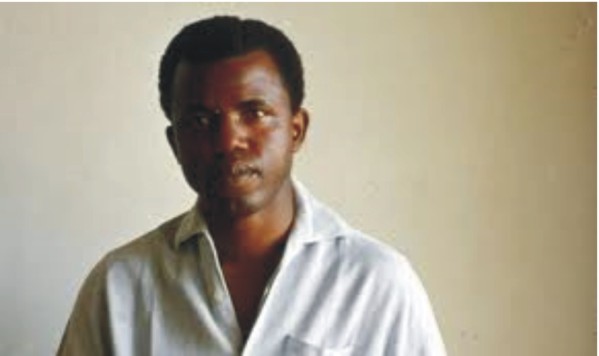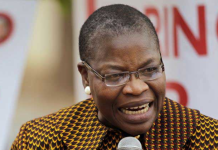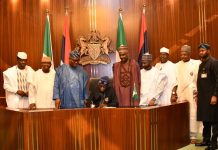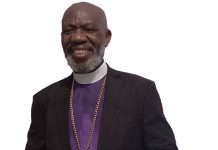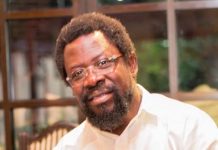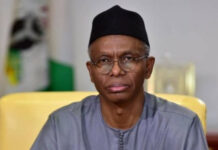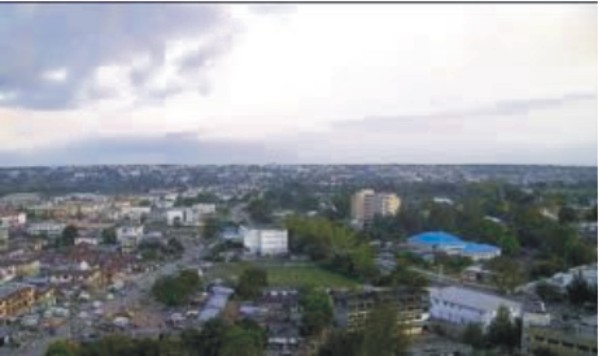Late Professor Chinualumogu Achebe does not need introduction to Nigerians pre-and post-independence Nigeria, pre and post-Nigerian Civil War.
Even in the grave, Achebe is a household name nationally and internationally, especially in the literary world, belonging to the class of acclaimed world writers.
One of Achebe’s books that show-cased him to limelight is his “Things Fall Apart” selling up to 10 million copies and translated into over fifty languages.
Achebe’s literary achievement came to a climax with the publication of his book “There Was A Country”. In disability, Achebe found ability in wheel-chair, a legend living ahead of his time and contemporaries, believing and having a premonition that if he failed to publish the epoch-making book while alive. There Was A Country would be subjected to a flurry of controversy when he would be no more. Some of course, would have reasons to dismiss the book as a figment of somebody’s imagination and not the brain-child of Professor Chinua Achebe.
However, like any other book on civil war, not everybody accepted or believed the truth and messages put across, particularly the characters indicted and their sympathizers but for those who were victims, who saw, witnessed the war, traumatized by its horrors and atrocities, acknowledge the authors incontrovertible account.
There Was A Country, delves into pre-independence period struggles of our nationalists. Some were in the fore-front, vociferous and aggressive, yet others were docile, but they were all united for the common goal – self rule from the colonial overlords. The likes of Dr. Nnamdi Azikiwe, Herbert Macaulay, Chief Obafemi Awolowo, the Sarduana of Sokoto, Sir Ahmadu Bello, Alhaji Aminu Kano, Dr. Michael Okpara never hid their opposition against the British rule.
Achebe took Nigerians and the world into a memory lane, how the Northern and Southern protectorates with their component units were culturally and economically flourishing, subsequently were fused (amalgamation) in 1914 by Lord Federick Luggard, forged on with self-government (independence) in 1960; how Nigeria fared well shortly but faltered and failed (the Civil War) in 1967.
Achebe blamed the failure or emergence of the expected strong truly united and prosperous country on the insidious contraption foisted by colonialists on Nigerian people and that was the culture of mediocrity.
The Nigeria / Biafra war was not without massive destruction on both sides in human and material resources, reinforced or aggravated with the introduction of economic blockade, triggering off starvation against civilian population particularly children, mothers and the aged. It was a war of attrition, annihilation, brothers against one another evidently avoidable, but for ego, arrogance and ignorance.
At independence, Nigerian leadership frittered away golden moments and opportunities. During the civil war Nigeria lost its brightest and most brilliant brains and accomplished scientists Professor Chinua Achebe and others can be immortalized changing positively to “There Is A Country”. This is possible, achievable, if only we abandon our old ways, extinguish the modus operandi of pri-mordial politics, ethno-superiority complex, get our priorities right, do the right thing at; the right time and to the right people.
Similarly the military must remain subordinate, submissive within the ambits of the constitution. It must not be partisan, entangled or enmeshed in politics. The political class, in the same vein, should at all times play politics according to the rule; create the enabling environment for people to exercise their inalienable rights to determine and choose their leaders and representatives.
We must not allow our differences to continue to polarize or dichotomise us, recalling that the failure of-the first republic was a product of mutual suspicion, misconception, misinformation, envy and ethnic rivalry.
There Was A Country further distilled, we must come to terms with the futility of war, especially within boundaries and we must resolve never again to despise the potency of dialogue, no matter the height of provocation.
Achebe points out the fact that apart from tongue and colour, there is no difference between the whites and blacks – all possess ingenuity and the civil war brought out the best of the ingenuity of the black race.
The book recognizes and highlights the importance of education to human development and capacity especially, the type of education identified with at Government College Umuahia, Dennis Memorial Grammar School Onitsha, Kings College, Queens College both in Lagos and others. These schools molded and shaped eminent Nigerians in the 1940’s – the likes of Professors Chinua Achebe, Bede Okigbo, Wole Soyinka, John Pepper Clark, Christie Okoli, Grace Alele Williams, Iya Abubakar, Flora Nwapa, N.IJ Akpan, Ekukinam – Bassey, Ken Saro-Wiwa, Chu Okongwu.
These men and women, a medley of Doctors, engineers, literary giants, contrary to what obtains presently, did not cut- corners, bribe their ways to the acquisition of certificates and honours, short of meritocracy. In their days, it was merit before money and not money and then merit.
Today Late Professor Achebe is not being remembered by the edifices of his wealth left behind, the high rise buildings dotted in choice and reserve parts of Nigeria and the globe. Achebe is not credited with exquisite hotels, exotic cars, jeeps nor is his name etched on our consciousness with landed property amassed.
To Achebe these acquisitions are ephemeral, fleeting and not glorifying. As a mortal, Achebe chose the path of minimum comfort, honour, integrity, forth- rightness, always calling a spade a spade and telling authorities, the powers that be and the mighty the blunt and uncomfortable truth, even at his peril. Achebe rejected national honours not to slight authorities but unequivocally in protest against injustice, inequality, corruption and maladministration. Achebe remains a pathfinder, a pace-setter. Achebe would continuously be remembered for his unfathomable depth and fountain of knowledge. He was a walking encyclopedia who carved a niche for himself here and beyond the shores of Nigeria.
The youth of today should draw inspirations from what Achebe fought and stood for. Achebe epitomizes a study in sacrifice, silence and resilienc
Welcome!Log into your account

